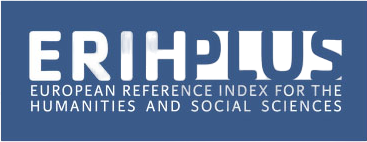Legal treatment of terrorism for the Colombian guerilla FARC as part of transitional justice
##plugins.themes.bootstrap3.article.main##
This article is the result of a theoretical investigation that conduces the author to the Title of Master in Studies of Terrorism aimed to determinate the postulated true Peace Agreement against an eminently politician agreement seeking for a negotiated end to a Violent conflict where actors who use violence pretending a monopolization, dialogue with the States to allow their participation in the exercise of political power.
However, during the violent periods in Colombia, crimes and social reprehensible conducts have been committed not only from the inner normativity but also from the international regulations where Terrorism has been described as an 'atrocious crime' that has a connection to the political crime which would prevent the political Participation of the subversive group.
From the deductive methodology with a critical analytical approach and through the historical-hermeneutical method, it was able to see the possible consequences from the legal system of both international and national, and the pronouncements of the Constitutional Court which since the validity of the Constitution of 1991, it occurred in the terrorism line allowing to conclude that the legal treatment of terrorism in the context of transitional justice obeys a sui generis form where there is no relationship with the political crime but their benefits do apply to the authors of this crime.
Downloads
##plugins.themes.bootstrap3.article.details##
·Abad Castelos, M. (2012). El concepto jurídico de terrorismo y los problemas relativos a su ausencia en el ámbito de las Naciones Unidas. En E. Conde Pérez (ed.), Terrorismo y legalidad internacional (pp. 105-126). Madrid: Dikynson.
·Cepeda. I. (2006) Genocidio político: el caso de la unión patriótica en Colombia. En Revista Cetil, Año I, No. 2, septiembre de 2006, pp. 101-112. Recuperado 4 de Septiembre 2015 de http://www.desaparecidos.org/colombia/fmcepeda/genocidio-up/cepeda.html
·De La Corte. L. (2006) La Lógica del Terrorismo. Madrid. España. Alianza.
·Lopez. D. (2000) El Derecho de los Jueces. Bogotá. Colombia. Legis.
·Kelsen. H. Teoría Pura del Derecho. Bogotá. Colombia. Libros Hidalgo.
·Gonzales, F. (2006). ¿Una historia Violenta? continuidades y rupturas de la violencia política en las guerras civiles del siglo XIX y la violencia del siglo XX. En J. Ocampo (Ed.), Historia de las Ideas Políticas en Colombia (pp. 299-344). Bogota: Taurus.
·Pizarro. E. (2004) Marquetalia: el mito fundacional de las FARC. Recuperado de http://historico.unperiodico.unal.edu.co/ediciones/57/03.html Consultado 28 de Julio 2015.
·Uprimny, Saffon, Botero, Restrepo. (2006) ¿Justicia Transicional sin Transición? Bogotá. Colombia. De Justicia.
·Valencia. H. (1987) Cartas de Batalla. Una crítica del Constitucionalismo Colombiano. Bogotá. Colombia. Panamericana.
·Vargas. A. Las fuerzas armadas en el conflicto colombiano: antecedentes y perspectivas. Bogotá. Ed. La Carreta Editores.
REFERENCIAS JURISPRUDENCIALES
D.L 100/1980.
CConst, C - 052/1993. Greiffenstein. Jaime S.
CConst, C – 171 de 1993. Naranjo. V.
CConst, C - 127 de 1993. Martinez. A.
CConst, C - 415 de 1993. Hernandez. Jose G.
CConst, C – 069 de 1994. Naranjo. V.
CConst, C – 009 de 1995. Naranjo. V.
CConst, C – 695 de 2002. Córdoba. J.
CConst, C – 1055 de 2003. Monroy. M.
CConst, C – 816 de 2004. Uprimny. R.
CConst, C- 928 de 2005. Araujo. J.
CConst, C – 370 de 2006. Cepeda. M. y otros.
CConst, C – 537 de 2008. Córdoba. J.
CConst, C- 986 de 2010. Vargas. L. E.
CConst, C – 577 de 2014. Martha Victoria Sachica.
Colombia, Constitución Política de 1991. Asamblea Nacional Constituyente 1991.
L. 599/ 2000.

















